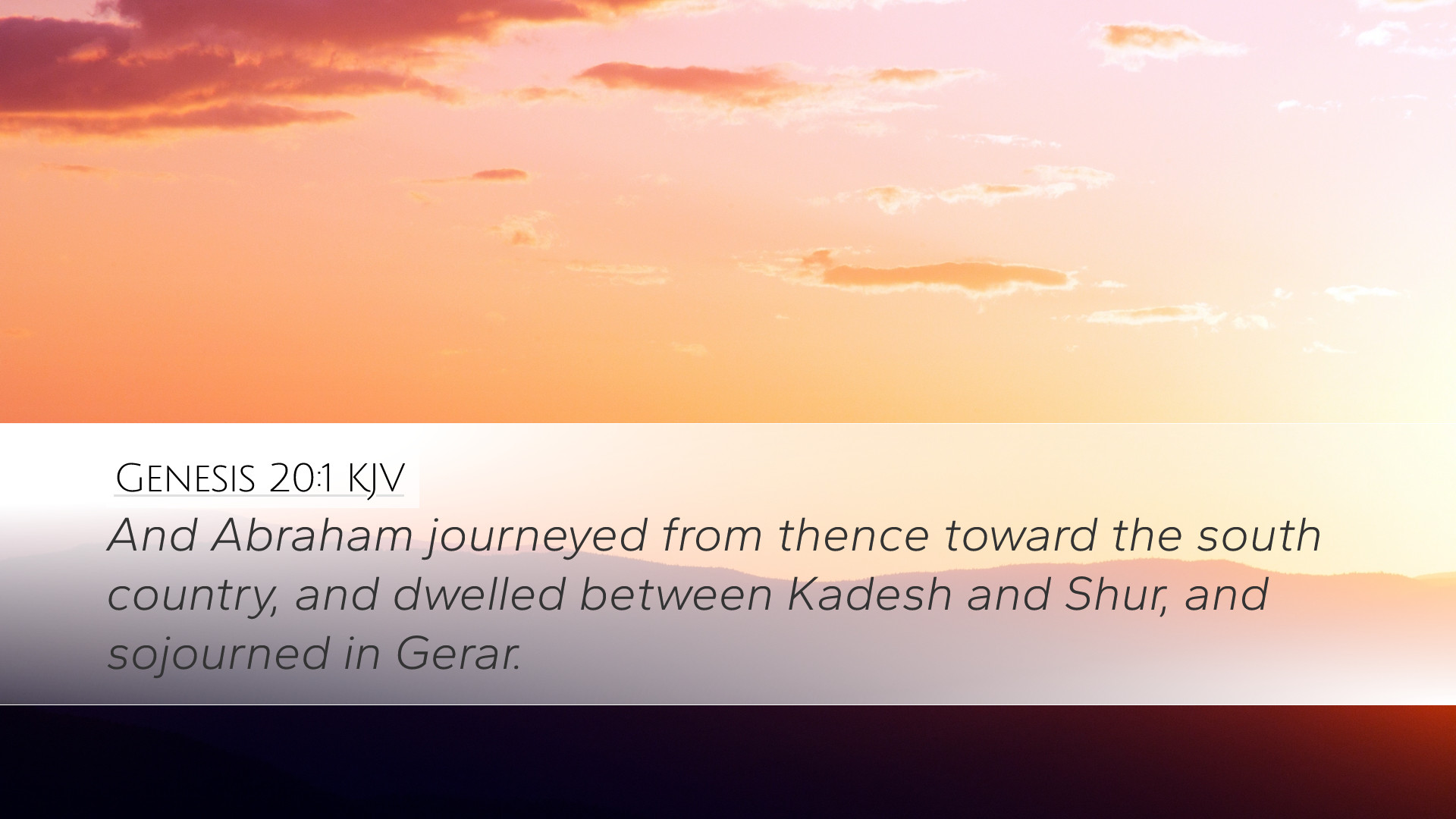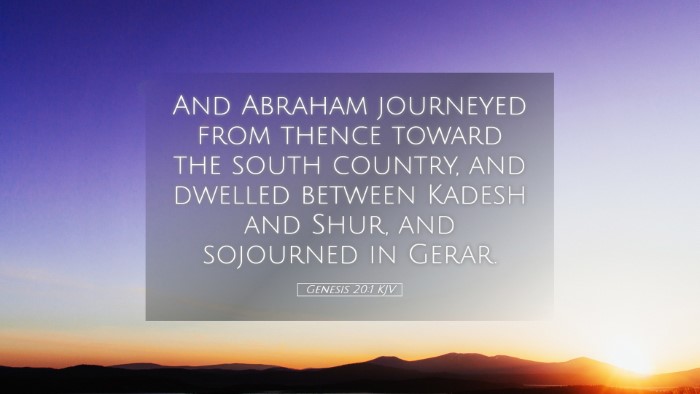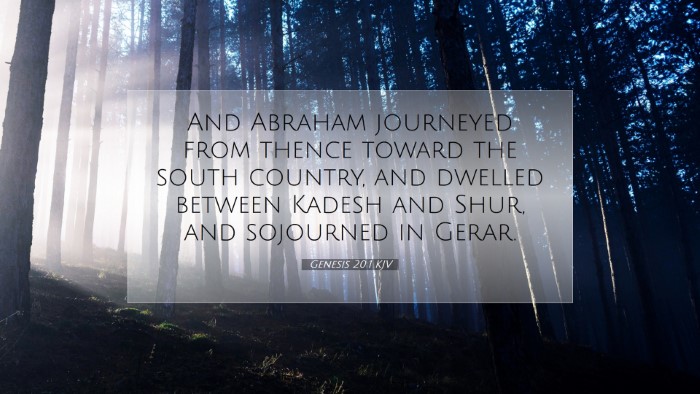Commentary on Genesis 20:1
Bible Verse: Genesis 20:1 - "And Abraham journeyed from thence toward the south country, and dwelled between Kadesh and Shur, and sojourned in Gerar."
Introduction
This passage initiates a significant yet often overlooked episode in the life of Abraham, the patriarch of Israel. The context provides deep theological insights into Abraham's character, his faith journey, and the ongoing covenant relationship with God, which is integral for understanding the overarching narrative of Genesis.
Historical Context
At this point in the narrative, Abraham was journeying through the Negev desert towards Gerar, a Philistine territory. This geographical movement indicates not just a physical travel but also a transition in Abraham’s spiritual understanding and the unfolding of God’s promises.
Commentary Insights
Matthew Henry's Commentary:
- Henry notes that this verse highlights Abraham's continued nomadic lifestyle, representative of faith in God's promises, despite not having fully realized the land of Canaan.
- He emphasizes Abraham's sojourn, suggesting that it signifies both a physical and spiritual pilgrimage towards God's ultimate purpose.
- Henry points out the dangers of residing in pagan territories, which often leads to moral and spiritual compromise.
Albert Barnes' Notes:
- Barnes stresses that Abraham's movement to Gerar symbolizes his attempts to navigate a complicated world while being faithful to God’s call.
- He discusses the socio-cultural implications of Abraham’s decisions, especially the potential influence of the surrounding cultures on his faith and integrity.
- Barnes highlights that Abraham’s journey merits reflection on how believers interact with secular environments.
Adam Clarke's Commentary:
- Clarke provides a detailed geographical analysis of the area between Kadesh and Shur, emphasizing its significance in the narrative of the Israelites.
- He interprets Abraham's sojourn as a test of faith, revealing a moment where reliance on God might be waning due to external pressures.
- Clarke underscores Abraham's imperfections, suggesting that even the faithful can falter, encouraging humility and dependence on God’s grace.
Theological Implications
Genesis 20:1 opens up several theological themes relevant for deeper reflection:
- Faith and Wanderlust: The journey motif encapsulated in Abraham's movement serves as a metaphor for the Christian life, signifying both adventure and uncertainty in following God’s will.
- Divine Providence: Even in foreign lands and challenging circumstances, God’s sovereign oversight remains, illustrating that He is working out His purposes through the lives of His servants.
- Moral Integrity in a Secular World: Abraham’s experiences in Gerar pose ethical questions regarding the balance of faith and the necessity of integrity amidst cultural challenges.
Practical Applications
The insights gleaned from Genesis 20:1 have several practical applications for contemporary believers:
- Trust in God’s Promises: Like Abraham, believers are called to journey in faith, often facing uncertainties without clear answers concerning their future.
- Navigation of Cultural Landscapes: Pastors and theologians can reflect on how Abraham’s sojourn encourages modern readers to maintain their faith identity while engaging with diverse cultures.
- Recognizing Human Frailty: Abraham’s story reminds believers that faith does not equate to perfection, highlighting the importance of seeking God’s forgiveness and grace during failures.
Conclusion
The verse encapsulates a moment of transition in Abraham's faith journey, serving as a rich source of reflection for pastors, students, and theologians alike. It encourages us to consider how we navigate our own 'sojourns' of faith, in turbulent cultural landscapes, reliant on God’s promises and guidance.


